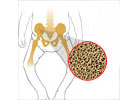A new blood test is all set to measure the iron deficiency in infants earlier than other blood tests, reports the recent issue of the Journal of the American Medical Association.
A new blood test is all set to measure the iron deficiency in infants earlier than other blood tests, reports the recent issue of the Journal of the American Medical Association.
Iron deficiency is estimated to affect nearly 10 percent of children of one to two years of age. Early detection and treatment are critical because iron deficiency can impair infant mental development, possibly permanently, even before it progresses to anemia (clinically identified as a low hemoglobin level).The study, done at Children’s Hospital Boston, is the first to compare the test, called CHr, with the standard hemoglobin test as a screen for iron deficiency in infants. Hemoglobin is the iron-containing, oxygen-carrying molecule in red blood cells; the CHr test measures the hemoglobin content of reticulocytes, or immature red blood cells, whereas the standard hemoglobin test is based on the entire population of red blood cells.
Because reticulocytes are present in the bloodstream for only 24 to 48 hours, as compared with several months for mature red blood cells, measuring the reticulocyte hemoglobin content (i.e., CHr) provides a more timely indication of iron status, the investigators say.
In this study, 200 healthy infants 9 to 12 months of age underwent both tests, as well as a transferrin saturation test, which is the “gold standard” test for iron deficiency but is impractical for routine screening. Using the optimal CHr cutoff value (established as 27.5 picograms), CHr correctly identified 83 percent of the iron-deficient infants, compared with only 26 percent identified by the current screening standard (a hemoglobin level less than 11 grams/deciliter).
This study shows that CHr can be used to detect iron deficiency earlier and more accurately than standard hemoglobin screening. Once confirmed in larger, multicenter studies, these findings could change the preferred screening practices for the early detection of iron deficiency. The researchers had said that the CHr test is simple, requires no extra tubes of blood to be drawn and involves no additional cost.
Source: Newswise











